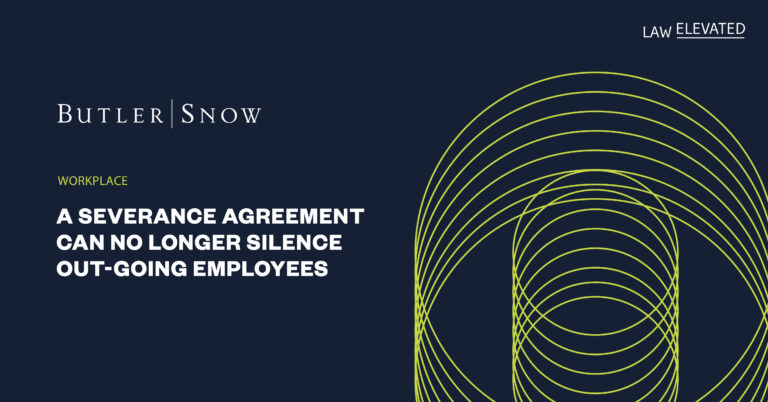For years, confidentiality and non-disparagement clauses have been integral parts of any agreement where the employer agrees to pay the departing employee a severance. These types of provisions protect the employer on two fronts: first, as to confidentiality, the employer would not be subject to copy-cat claims or allegations from other employees who may suspect they are next to go and want use another employee’s agreement to set a floor for negotiating their deal. Second, as to non-disparagement, the employee would be prevented from hanging dirty laundry in public and tarnishing the business and community reputation of the employer, while also pocketing severance pay.
Recently, during the Trump administration, the National Labor Relations Board (“NLRB”) specifically approved these types of provisions as reasonable conditions to an agreement where the employer is paying a severance to the employee. In Baylor University Medical Center, 369 NLRB No. 43 (2020) and IGT d/b/a International Game Technology, 370 NLRB No. 50 (2020), the NLRB broadly permitted employers to include confidentiality and non-disparagement provisions in severance agreements. However, on February 21, 2023, the NLRB overturned those decisions in McLaren Macomb, 372 NLRB No. 58 (2023).
In McLaren the NLRB determined that confidentiality and non-disparagement provisions, when overly broad, impede the exercise of rights protected under the National Labor Relations Act (“NLRA”). In the NLRB’s view, these provisions act as a restraint on an employee’s right under Section 7 of the NLRA to discuss terms and condition of his/her employment with fellow employees or third parties such as union representative, and, in addition, constitute an unfair labor practice under Section 8(a)(1) of the National Labor Relations Act (NLRA).
The ruling should not come as a big surprise considering the NLRB’s crackdown on employer handbooks over the last couple of years – especially as to confidentiality provisions in handbooks. Further, it has been accepted for years that an employer cannot prevent an employee from discussing his/her wages with other employees since wages are a term and condition of employment. Nevertheless, the NLRB’s ruling certainly will change how employers approach severance payments going forward and perhaps convince some employers not to offer severance at all if confidentiality and a clean reputation cannot be secured in exchange.
It is important to note that the NLRA applies to all private employers (excluding airlines and railroads) whether the employer has a union or not. Therefore, if you have a practice of providing severance to departing employees, the employer is advised to review its severance agreement template for compliance with the recent decision of the NLRB. However, it is likely the McLaren decision does not impact any such agreements with executives, managers, supervisors, or independent contractors as individuals in those kinds of positions are not considered “employees” within the meaning of Section 2(3) of the NLRA.
Given the impact of the NLRB’s decision in McLaren, Employers will no doubt have questions on how to apply the decision to their workforce. In the event there are questions or there is uncertainty on how McLaren will impact your business operations, the best approach is to consult an experienced Labor and Employment attorney.
